Abandoned Cart Email Tips And Benchmarks
Learn the art of crafting the perfect abandoned cart message as well as what benchmarks you should look out for your campaign to be considered a success.

Learn the art of crafting the perfect abandoned cart message as well as what benchmarks you should look out for your campaign to be considered a success.

We’ve talked a lot in the past about abandoned carts. Like…a lot.
Why write so much on the topic? Simply put—because reaching out to abandoned carts is an effective sales strategy.
Abandoned carts cost the average retailer an estimated $20,688 in monthly revenue.
The average cart abandonment rate across all industries is around 70%!
But perhaps the most notable stat is that mobile shoppers have the highest abandonment rate at 85.65%
But that doesn’t have to be the case.
Nearly half of all abandoned cart emails are opened and over a third of clicks lead to purchases back on site according to Shopify.
In order to help you reach (and exceed) that 1/3 sales benchmark for incomplete purchases, we’ve put together our best tips and tricks for your messaging.
Learn what makes a good abandoned cart email or text below.
From the copy you’re writing down to the send time, learn the makings of the perfect message right here.
In the case of text marketing you’re required to have express written consent from message recipients before sending them anything. Regulations aside, it’s still best practice to ensure your customers have given you permission to receive marketing messages before reaching out to them.
While handy, abandoned cart emails can feel a little invasive if you’re not expecting them. This can wind up giving you the opposite of the desired result.
The most popular reasons why a cart is abandoned actually varies by industry. Knowing why a customer might have left items behind can help you convince them to return for them.For example, in the travel industry, its complex checkout processes that lead to the most drop-off. For retail, unclear return policies at checkout commonly lead to cart abandonment.
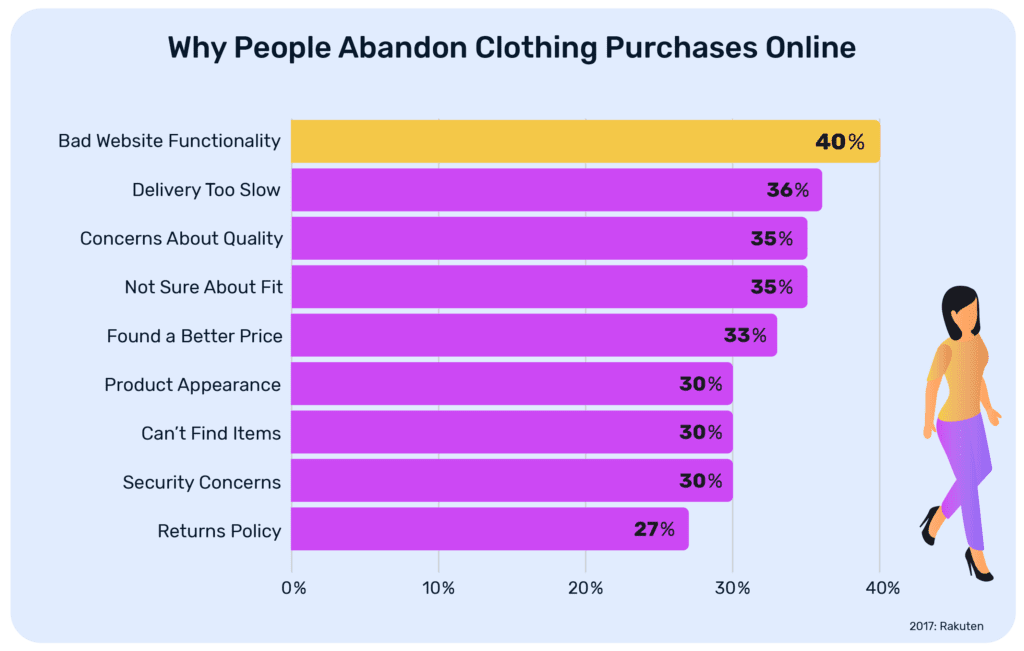
Message clarity is crucial if you want conversions. In order to let customers know exactly what you want them to do, you need to decide if you’ll run a remarketing or retargeting campaign. While the two are nearly synonymous, remarketing usually refers to when you direct them back to the original items in their cart and encourage them to purchase through email or text. Retargeting on the other hand, refers to the utilization of cookies or banner ads to share pop-ups of these items on different pages a customer may browse.
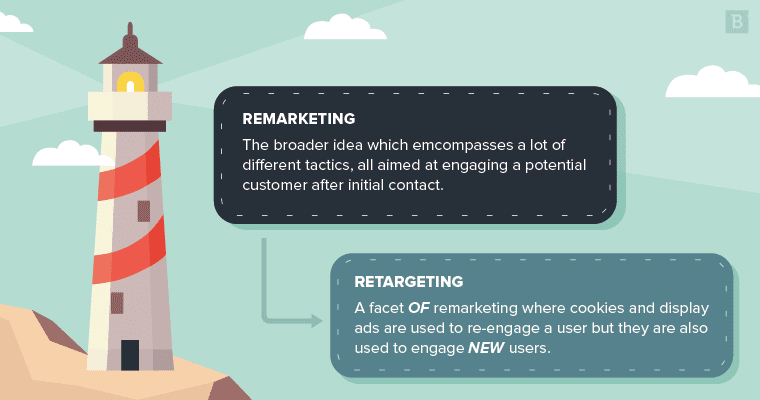
Timing is everything, and you want to make sure you send your message when your site is still fresh in the customer’s mind. Research shows that the sweet spot to send your message is one hour after a cart is abandoned.
Oftentimes abandoned cart emails also feature a “save for later” section. If your site has a sign-in feature, you can encourage customers to log in and save their favorite products so they can revisit them later. This is a great way to engage with folks who may not be ready to purchase just yet, but are now primed for retargeting efforts down the line.
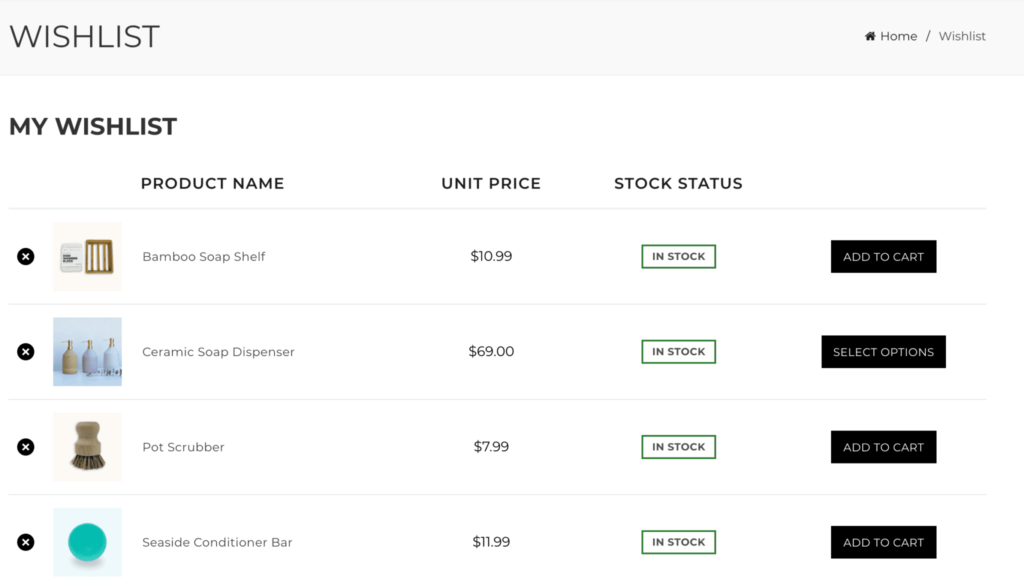
Another top reason customers may not engage with your abandoned cart email is that they’re worried it’s spam. An easy way to avoid this is to include trust signals such as product reviews or accreditations like PayPals security badges. Even saying something as simple as “don’t miss out on these ★★★★★ products in your cart” can make a difference!
[Read: How to Get More Online Customer Reviews For Your Business]
Shoppers put items in their carts because, at one point, they wanted to purchase them. Reignite that interest by prominently listing all the items that were left behind. Seeing a high quality photo of that perfume or dog toy one more time may just be the push they need to take the plunge.
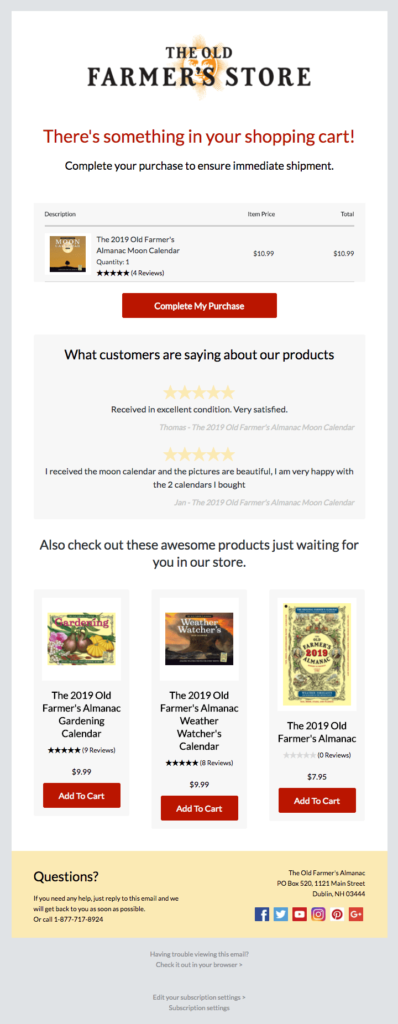
If a customer has more than one item left in their cart be sure to feature the best selling one(s) prominently. It’s best to advertise the product with the most sales in order to encourage at least a partial purchase.
When a customer abandons their cart it may mean they’re waiting for the right time or excuse to make the purchase. An exclusive discount could be just the reason they’re looking for. Discounts as low as just 10% have shown to improve conversions on abandoned cart emails!
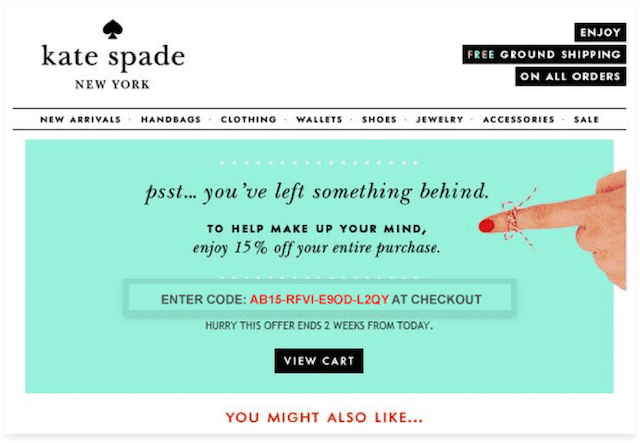
It can take hearing a message a few times to really let it sink in. That’s why best practice says you should aim to send a message through at least two channels. This also works to accommodate the different devices a customer was shopping with. For example, sending a text caters to the 86% of people who abandon carts while shopping on their mobile device, while an email may hit the 73% of people who abandon carts while shopping on their desktop device.
After sending your original abandoned cart email you may want to consider sending a second (or third,fourth, fifth…) email a few days later to follow up. The average CTR in an abandoned cart email sequence is only 3% lower than the CTR of the original!
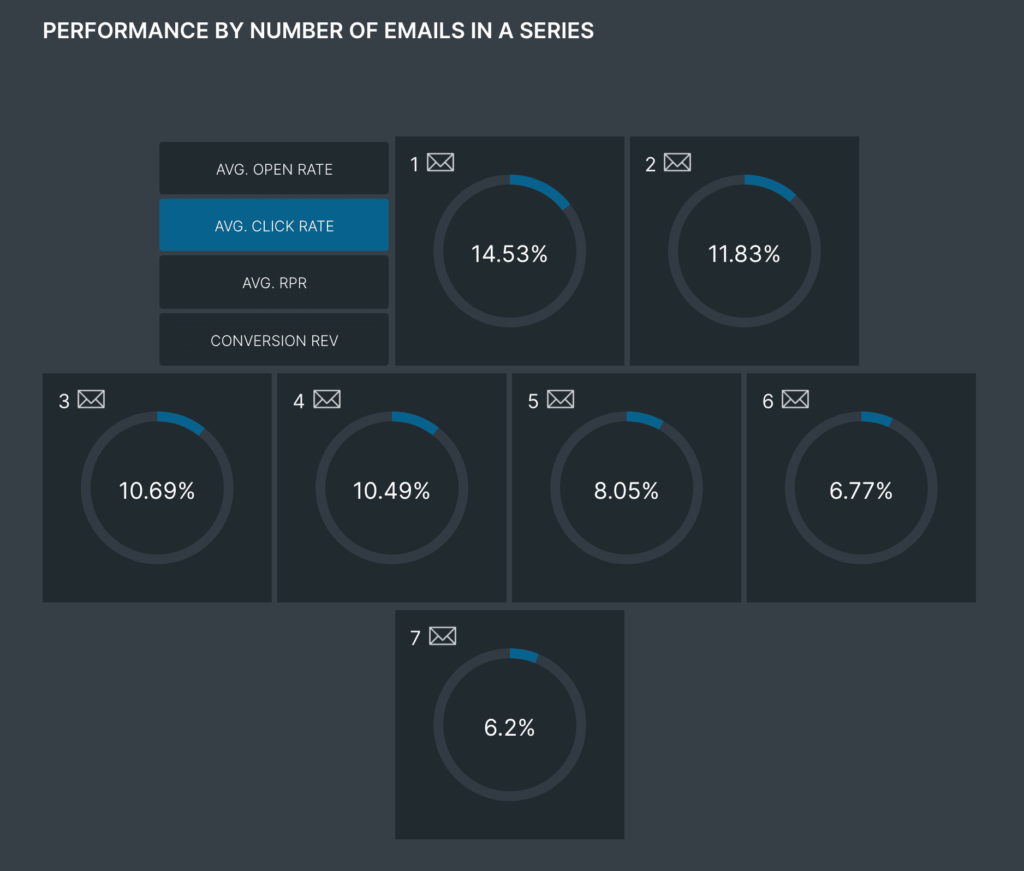
Businesses who have implemented abandoned cart strategies reported seeing a 50% increase in their conversion rates.
When you add in these tips and tricks above you’re sure to meet if not exceed those figures!
Meghan Tocci is a content strategist at SimpleTexting. When she’s not writing about SaaS, she’s trying to teach her puppy Lou how to code. So far, not so good.
More Posts from Meghan TocciLearn how GlobalRose has increased sales and engaged more customers with SMS over the last three years.
ReadExplore the steps in helping your e-commerce business stand out. From increasing sales to improving customer relations, make it possible with SMS messaging.
ReadStart a text marketing campaign or have a 1-on-1 conversation today. It's risk free. Sign up for a free 14-day trial today to see SimpleTexting in action.
No credit card required